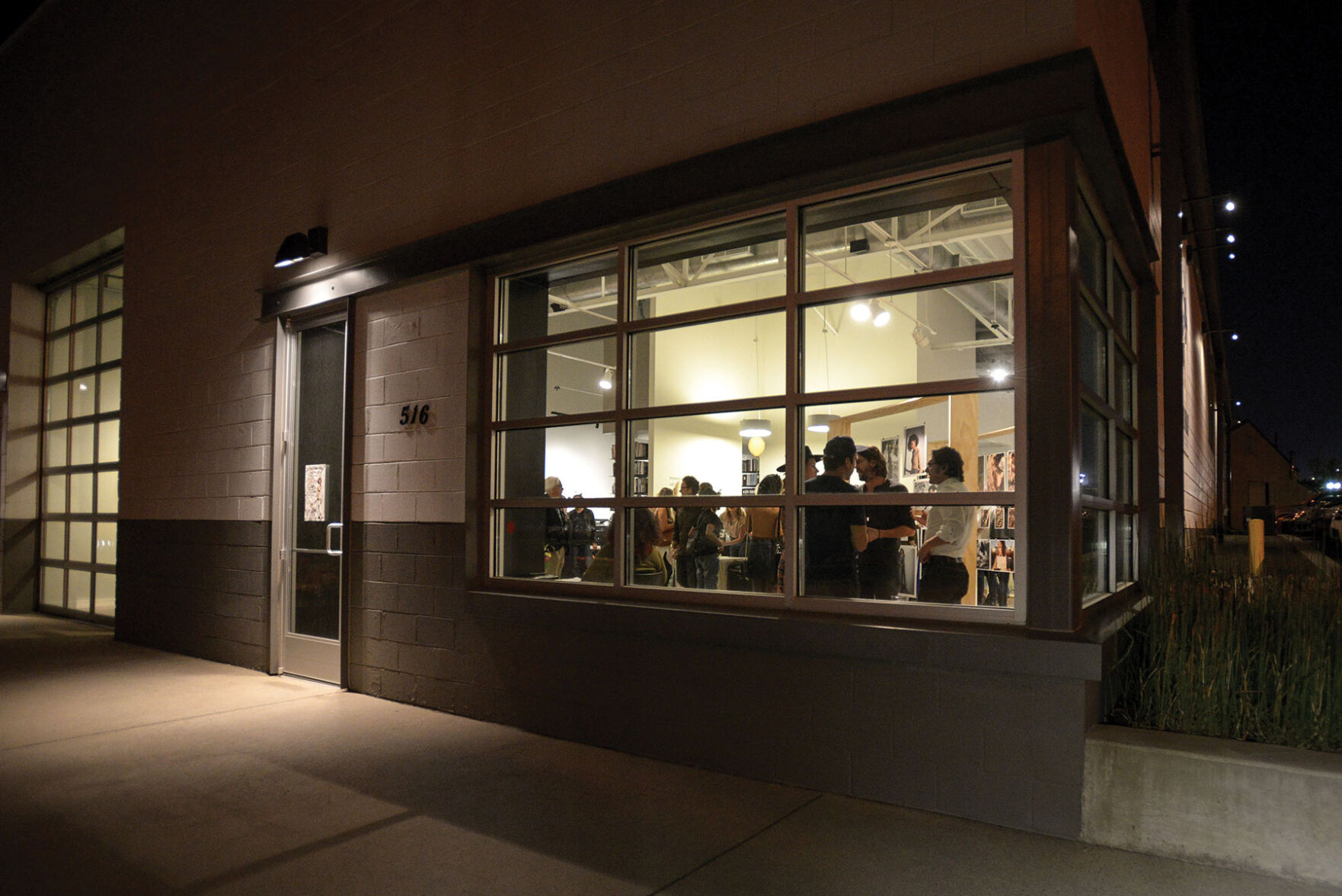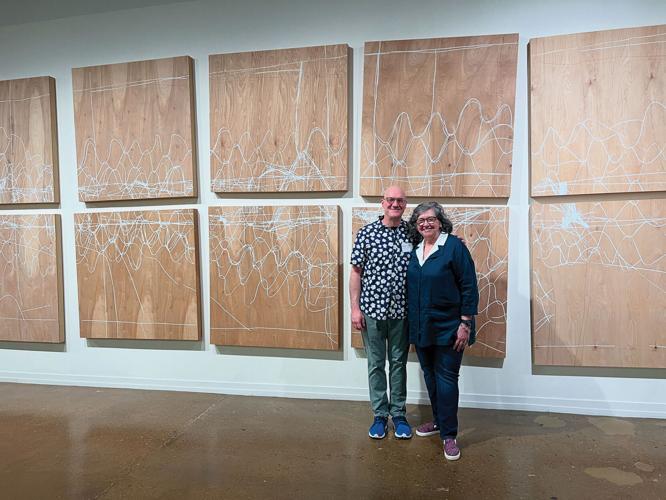A good gallery can open up a city. Art starts conversations, advances culture, brings otherwise disparate communities into proximity with each other. A good gallery gives all that a place to happen. It makes sense, then, that Nashville’s most influential gallery has been set inside an architectural firm — a space built for imagining how people might move through the world.
In December, that gallery will close its doors.
In a press release sent out last week, Zeitgeist’s Janice Zeitlin wrote that the gallery would close its doors at the end of the year. “After three locations and 32 years in business it is time to move to our next chapter.”
The Wedgewood-Houston art gallery will close in December
The news came as a surprise to almost everyone in the local art community. Artists took to social media to pay respects and deliver art-world eulogies.
“The space challenged me and the staff said yes to almost any idea I brought to them,” artist Karen Seapker wrote in an Instagram post that included photographs of her children in the gallery at various ages. “I saw my kids grow up in this gallery. My work grew immensely because of it.”
“Zeitgeist has been a home to us from our earliest days,” wrote Banning Bouldin of contemporary dance organization New Dialect in an Instagram comment. “Thank you for all you’ve done to support visual and performance artists in our city.”
“Wedgewood-Houston won’t be the same,” read a comment from Coop Gallery.
But after the initial shock wore off, it became apparent that good news is on the horizon. Anna Zeitlin, the daughter of Zeitgeist founders Janice and Manuel, says this is just the end of a chapter, not the whole book.
“Manuel Zeitlin Architects is going to stay in the space,” she tells the Scene by phone, “and they are currently talking with Lain [York, Zeitgeist’s longtime director] about a new project there that would start next year.”
The new project has yet to be defined, but Anna says it will potentially feature a mix of art, music and other community-focused events. For longtime gallerygoers in Nashville, the history of Zeitgeist as a place for performances means this incarnation is not a stretch — the space has hosted concerts in conjunction with art exhibitions as well as an experimental music series called Indeterminacies. Dance performances from New Dialect and the Trisha Brown Company have taken place at the Wedgewood-Houston location. More recently, a crowded closing reception for the group photo exhibition To Gather: Together included a DJ set and people playing cards around tables that were arranged like mini installations.
“Lain and the Zeitlins provided me with an opportunity that I couldn’t even fathom,” To Gather: Together co-curator Alisa Jernigan tells the Scene. “Because of the opportunity they afforded me, I feel empowered to step outside my zone of comfort into a path I never considered was for me.”
That’s a sentiment shared by artists who have been with the gallery for years, including photographer Vesna Pavlović.

Lain York and Janice Zeitlin
“It’s always sad when a contemporary art space closes its operation in any city, and especially here in Nashville,” Pavlović tells the Scene. “I think we need good spaces, and I think Zeitgeist has for so long been a space for interdisciplinary collaboration, for experimentation, for forward-thinking practices, and I will miss that aspect of gallery life in town.”
It’s that interdisciplinary vision that Pavlović thinks will be Zeitgeist’s most enduring legacy. “I think that that ground was super fertile, and also, Zeitgeist has always been very receptive to new artists,” she continues. “It’s really a big scope. I mean, they lasted for 32 years, and I think that tells you that model of collaboration with the city has really worked.”
In June 2024, the Scene’s sister publication the Nashville Post reported that the property where Zeitgeist was housed had been purchased for $12.25 million by Tim Johnson of Material Ventures LLC. About the sale, Anna tells the Scene the Zeitlins are still on the lease.
“We are 12 years into our 20-year lease, and are fortunate to be able to go out on our own terms,” she says. “I think it would be much harder to start now. As rents keep going up, if we want to keep Nashville creative, it’s going to take community buy-in and stronger public investment in the arts.”
The community that Zeitgeist nurtured — which includes artists like Seapker and Pavlović, curators like Jernigan, performers like New Dialect and even writers like myself (several of the earliest pieces of art criticism I wrote for the Scene were about Zeitgeist exhibitions) — has big shoes to fill.
“When you think about what was here before — like the Frist wasn’t here, right?” Anna says. “It’s just been amazing to see the way Nashville has changed. And I think knowing all that has made this decision a lot easier. It feels like there’s so many other places to see art, and so many people that will carry it on.
“I’m very excited to be a spectator for a change, and to see what comes next.”







